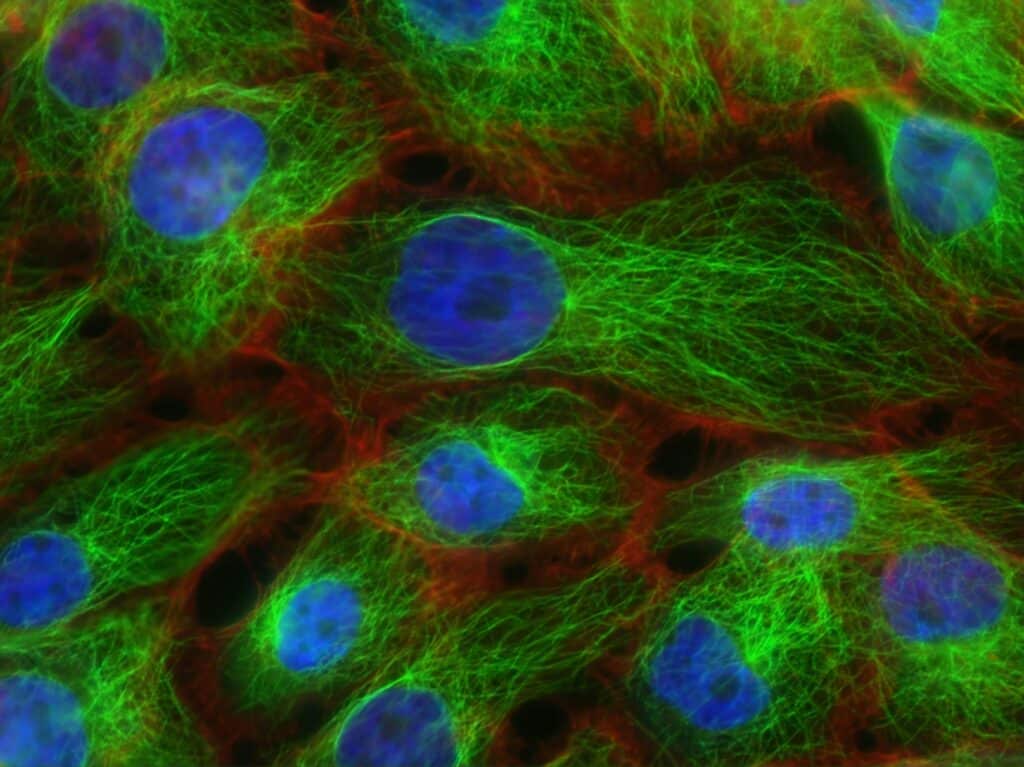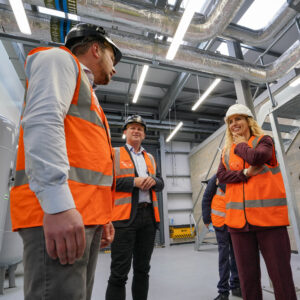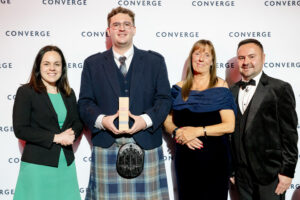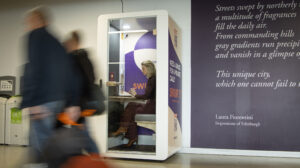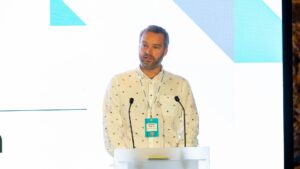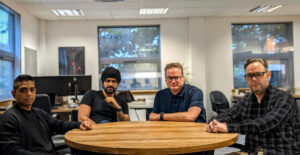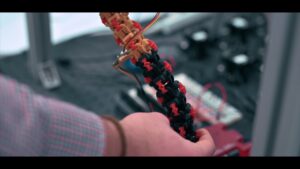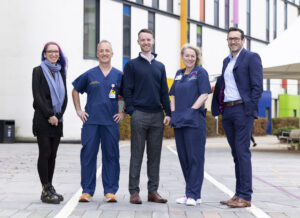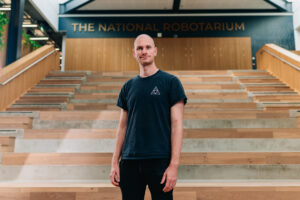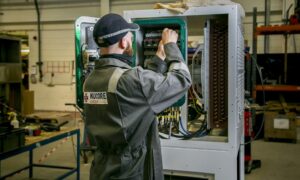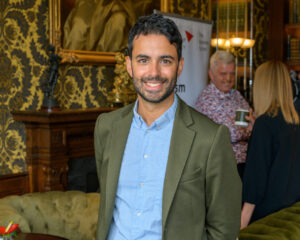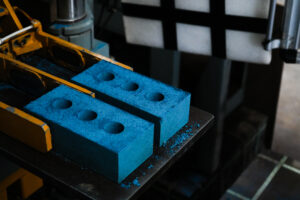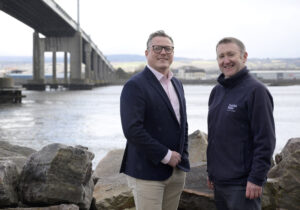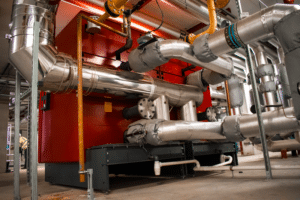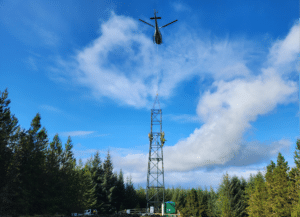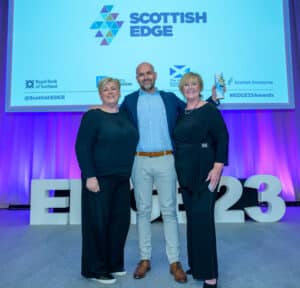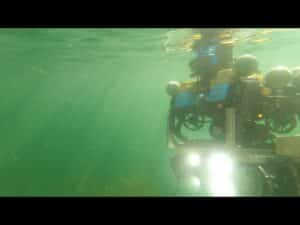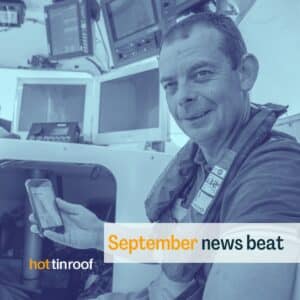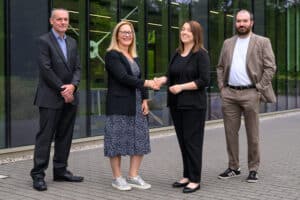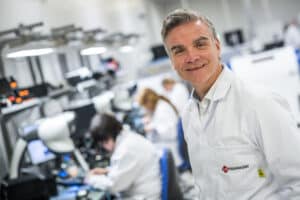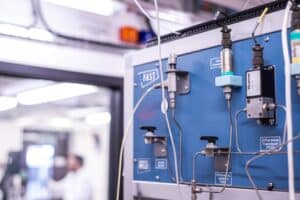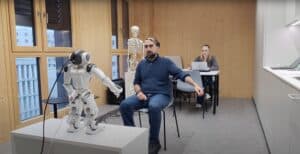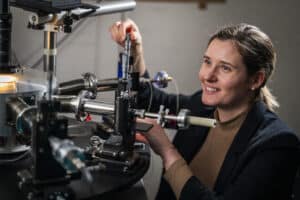Researchers at Heriot-Watt University are to develop a new method of identifying cancerous DNA which could reduce the need for painful biopsy surgery.
Currently, in order to select their best treatment options, most cancer patients need to have an unpleasant and expensive surgical operation to remove a sample of tissue from their tumour, called a biopsy. However, all people have small amounts of DNA circulating freely in their blood (which is not inside their blood cells) and in cancer patients some of this circulating free DNA has come from their tumour. This tumour DNA is different from their healthy circulating DNA as it carries the mutations which have transformed these cells from healthy cells to cancer cells. Therefore, this circulating tumour DNA (ctDNA) has the potential to reveal details about the patient’s cancer and show which treatments are most likely to be successful.
Methods to study ctDNA have been developed but all are limited by the low abundance of ctDNA and the presence of larger amounts of background healthy DNA in blood samples, so the Heriot-Watt research team have developed a new method (SNARE) to process blood samples, making the detection and characterisation of cancerous DNA easier.
Scientists aim to develop both robotic benchtop and microfluidic platforms (similar to some lateral flow tests) and assess the best performing methods using a set of blood samples from breast cancer patients, which should deliver more sensitive detection of the ctDNA and require less expensive DNA sequencing.

Professor Nicholas Leslie said:
“In late-stage cancer patients, there’s quite a lot of DNA in the bloodstream that would be from a tumour, but often it’s too late to cure those patients. In early-stage cancer patients, the chances of successful treatment are higher, but something like 99% or more of the free circulating DNA in a blood sample will have come from healthy cells in the body, making identifying mutant DNA more difficult.
“What we want to do is further develop a technique we’ve tested in the lab which we plan will allow us to diagnose, analyse and characterise tumours much earlier, as well as detecting the recurrence of cancer before it’s had a chance to develop and spread.
“We are collaborating with the Academic Consultant Medical Oncologist and Breast Cancer Translational Research Lead at the Institute of Genetics and Cancer, University of Edinburgh, Dr Olga Oikonomidou, a key opinion leader in breast cancer.
“Dr Oikonomidou is going to provide us not only with the relevant patient blood samples so we can test efficacy and validate our technique but also help us to understand the clinical relevance and correlate our data with long term outcomes like disease free intervals and overall survival.”
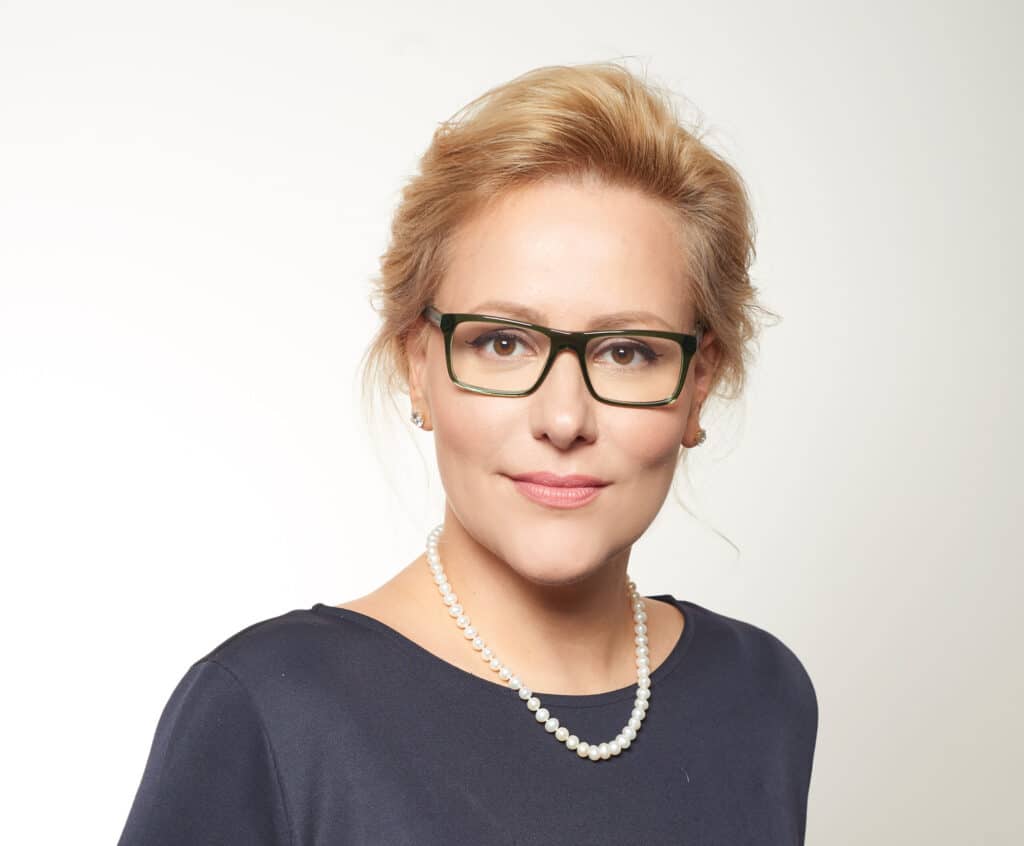
Dr Olga Oikonomidou said:
“Breast cancer survival is generally very good, particularly if patients are diagnosed early. The diagnosis is, however, still devastating for patients and families with patients living their lives with the constant fear of recurrence.
“Monitoring early breast cancer patients with liquid biopsies (cell free DNA or cfDNA) has been unsuccessful so far due to technical and biological detection challenges. cfDNA provides a more comprehensive genomic landscape of the entire disease and is superior for detecting certain acquired genomic alterations as tissue biopsies are subject to sampling bias. Moreover, cfDNA offers faster turnaround time and greater feasibility compared to tissue biopsies.
“We hope that with this new technique being developed by Professor Leslie and his team we will have the chance to overcome all the existing challenges and offer patients a successful and clinically meaningful follow up of their disease.”
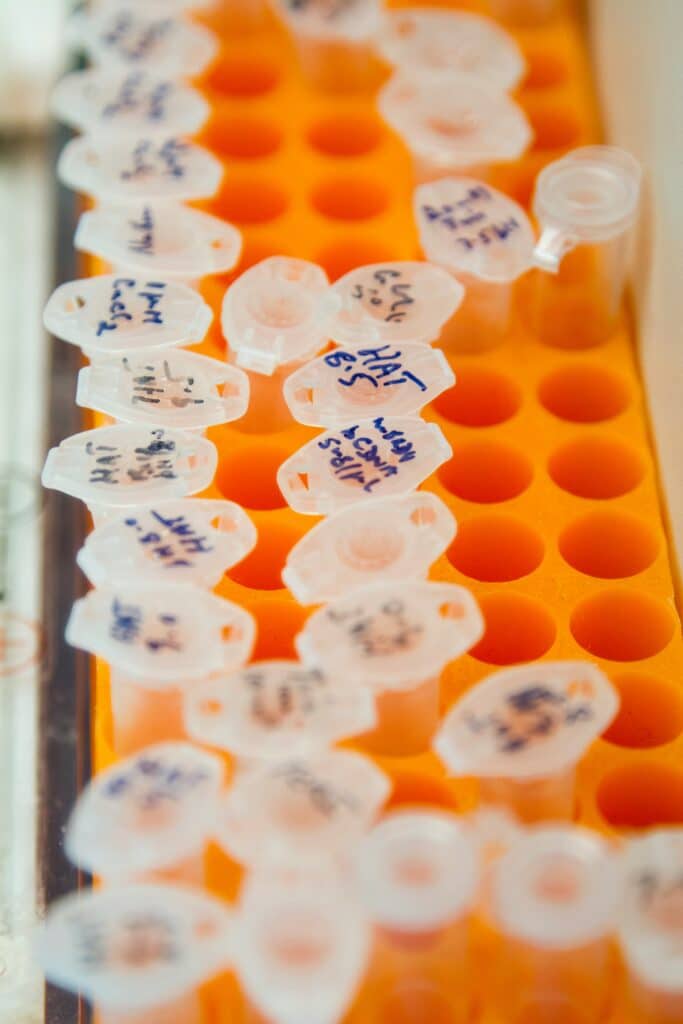
Dr Kedar Pandya, Director for Cross-Council Programmes at EPSRC, said:
“MicroSNARE could offer an innovative new approach to cancer detection which could be less invasive and, crucially, allow for much earlier identification and intervention.
“In combining the latest approaches from fields such as robotics and microbiology it illustrates the importance of investing in research and innovation to deliver benefits for all of society.”
Steve McLaughlin, Vice Principal and Provost at Heriot-Watt University said:
“The mission of our new Global Research Institute in Health and Care Technologies is to collaborate closely with industry and sector partners to deliver innovative, sustainable, and practical solutions to global health challenges. MicroSNARE is another example of this approach.
“Fighting cancer is one of the five key themes for Health and Care Technologies and the collaboration with a scientist of Dr Olga Oikonomidou’s reputation will allow our researchers to accelerate their work.”
Anyone interested in collaborating with the new Health and Care Technologies global research institute at Heriot-Watt University can contact [email protected]

